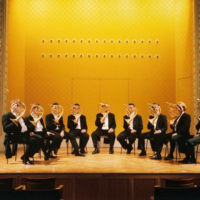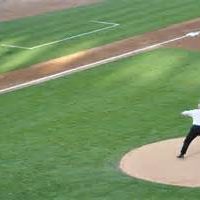I trust this will be my last post about classical music publicity, at least for a while. Well, wait…I'm tempted to reprint one from long ago, about how to write press releases. But let that be. What's much more important is to reprint something else -- a guest post by Lara Downes from a couple of years ago. It's about how she promoted a performance by classical pianist Christopher O'Riley, at a concert series she's run at a jazz club, where she draws an audience with many people in it who don't normally go to classical concerts. This is … [Read more...]
Why I’m talking about publicists (first take)
What's in this post: Classical music press releases have to bring the music vividly alive, because they're going to be read -- crucially read -- by many people who aren't classical music specialists I’ve heard that classical music publicists are talking about what I’ve been writing, posts that say these publicists aren't as effective they should be. So I thought I’d expand on these posts (which are here, here, and here). To say more about why I’m concerned. And, maybe, to help the many people who've agreed with me, and think, as I … [Read more...]
They can do better
I got a press release from the Boston Symphony, advertising live streams from Tanglewood. On July 15 (tomorrow, as I write this), Pinchas Zukerman will conduct the Mozart E flat symphony, and the BSO will stream the second and third movements. Which seems lame. Why not the whole piece? Let me say that -- as I wonder about the streaming, and a bit further down, roll my eyes a bit at how part of the release is written -- I don't mean to single out the BSO. I see weak things from many classical music institutions. The BSO is no worse than many … [Read more...]
If you think you need a publicist…
…look for one who thinks strategically. By which I mean the following. Traditionally, publicists try to get you in the media. Get newspaper articles written about you, get your performances reviewed, get you on TV, whatever. While marketers would concentrate on selling tickets. Advertise in newspapers, send email to a mailing list, whatever. But now we’re in a nother age And so the traditional ways may not work anymore. It’s suited to a culture we no longer really have, where your prospective audience could be counted on to read the … [Read more...]
They don’t expect results
What’s in this post: A Boston Symphony concert poster, just as ineffective as most classical music press releases A theory: that these materials are ineffective because no one really expects them to do very much. And then, at the end, this thought: If you put out ineffective stuff because, in your heart, you don’t think these materials can be effective, then haven’t you made a self-fulfilling prophency? And wouldn’t it be better — even crucial, since we need a new audience — to find out what really sells? I was in Boston, … [Read more...]
Bad SF Symphony link is fixed
Just a quick note -- the link to the San Francisco Symphony press release in my last post has now been fixed. I'll repeat it here, so anyone who couldn't get to it, and who's reading this now, won't have to go back to my last post to follow the link. My last post was about classical music publicists, and how they mostly don't write press releases that can make us interested in what their clients are doing. A San Francisco Symphony season announcement was one of my examples. Sorry for the inconvenience! … [Read more...]
A problem with classical music publicists
I've said these things before, for instance. But they need to be said again, following up on my last post, about a quick way to improve almost any publicity pitch. What’s in today's post: Classical music publicists don’t know how to say why we should care about the music they publicize. This problem afflicts the entire field of classical music. We don’t know how to say why anyone should care about the music we love. I can help with this problem. I deal with it in my consulting work. A big problem with classical music … [Read more...]
A small suggestion
I get a lot of ineffective pitches from classical music publicists. In fact — sad to say — I think most of the pitches I get from classical music publicists aren’t very strong. Take this one, which came recently: Hope all is well. I am following up about a possible review of XXX’s new album featuring pianist YYY. Details are below. What’s wrong with that? “Details are below.” Never write this! Give us the information we need right now. Don’t make us work to get it. Because — this is a truth we’ve all got to face — you can count on people … [Read more...]
How urgent is diversity?
In an earlier post, I talked about the League of American Orchestra national conference, which I was at last week, for one of its three days. The subject of the conferernce, as I said, was diversity. I went to one panel discussion of that, in which the thoughtful panelists happily got much input from the audience. Everyone — do I need to say that these were mostly people who were white? — seemed very sincere. Searching their souls. Saying that they should change. I honor that. And likewise I honor a theme that emerged, which was that we … [Read more...]
A lesson from Hamilton
So on Friday I zipped down from DC to Baltimore to attend the League of American Orchestras conference. Whose theme this year was diversity, aka “The Richness of Difference.” A three-day conference; I was there for only one day, so of can’t know everything that went on. But one thing I’m sure of. Symphony orchestras — or just about any major classical music institution — can’t match the diversity impact of Hamilton, which (not exactly to anyone’s surprise) just won the Tony award. And demonstrated so powerfully the richness of difference, … [Read more...]
At the League conference
In this post: I’ll be at the League conference. My thoughts on the conference theme, diversity. classical music institutions don’t do enough planning, when they look for a new audience. I’ll be at the League of American Orchestras conference tomorrow, Friday, June 10. Not speaking or presenting anything. Just hanging out. If you spot me, say hello! I love meeting people at these events. And of course I should have put this on the blog a little earlier! Conference theme The theme of the conference is diversity. I did a post … [Read more...]
Not so much power?
I’ve read some things about what Yannick might do as the Met’s music director, when finally he starts that job. (Can’t stop myself from calling the guy what the Philly Orchestra calls him, though I’ve never met him, and couldn't in my wildest dreams imagine that I'd write about Muti and call him “Riccardo.” The power of marketing for a new era!) In some of what I’ve read, there seems to be an assumption that Yannick will have a lot of power. But I wonder. In most US orchestras, the big ones, anyway, the music director has a more restricted … [Read more...]
A plan for diversity
in this post: Why diversity means more than simply selling tickets to diverse people. And why that might be impossible to do. And then - most happily - a bigger, more productive way to get diversity. This is something I can help you with as a consultant. Go here to learn about my consulting work. Conversation with a friend who runs an important classical music organization. How can they get more diversity, something funders like? Maybe not the right way What seems to be the simplest answer: Sell tickets to more kinds of people. This group … [Read more...]
So simple to fix
In my recent posts, I’ve noted a lack of real physicality in most opera stagings, which — to cite just one problem it causes — can lead to violent moments not looking violent. Which then makes opera look implausible on stage, unable to do what any action movie, even a bad one, manages with ease. Which then, I think, undermines any claims we make that opera is great art. No acting training needed And in my last post, I said this problem could easily be fixed. Even without opera singers getting much better training as actors than they … [Read more...]
The Tosca effect
Implausible things in opera staging, things any TV show gets right, things that can mar even opera productions that, overall, are quite good — that was the subject of my previous post. This weakens us, I said, If stage action isn’t plausible, people who come to opera from the outside will be turned off, will think we’re incapable, and very likely think our claim to be great art doesn’t quite track. If we can’t do the simple things, how can we claim to do big things? I was talking primarily of physical action on stage that’s not remotely … [Read more...]














